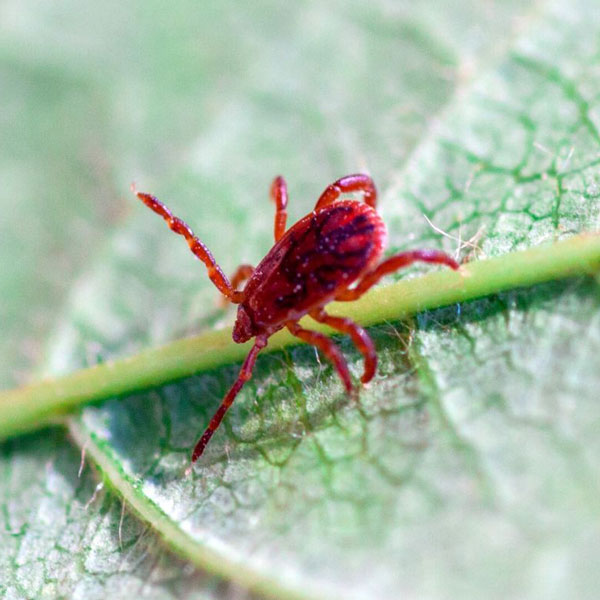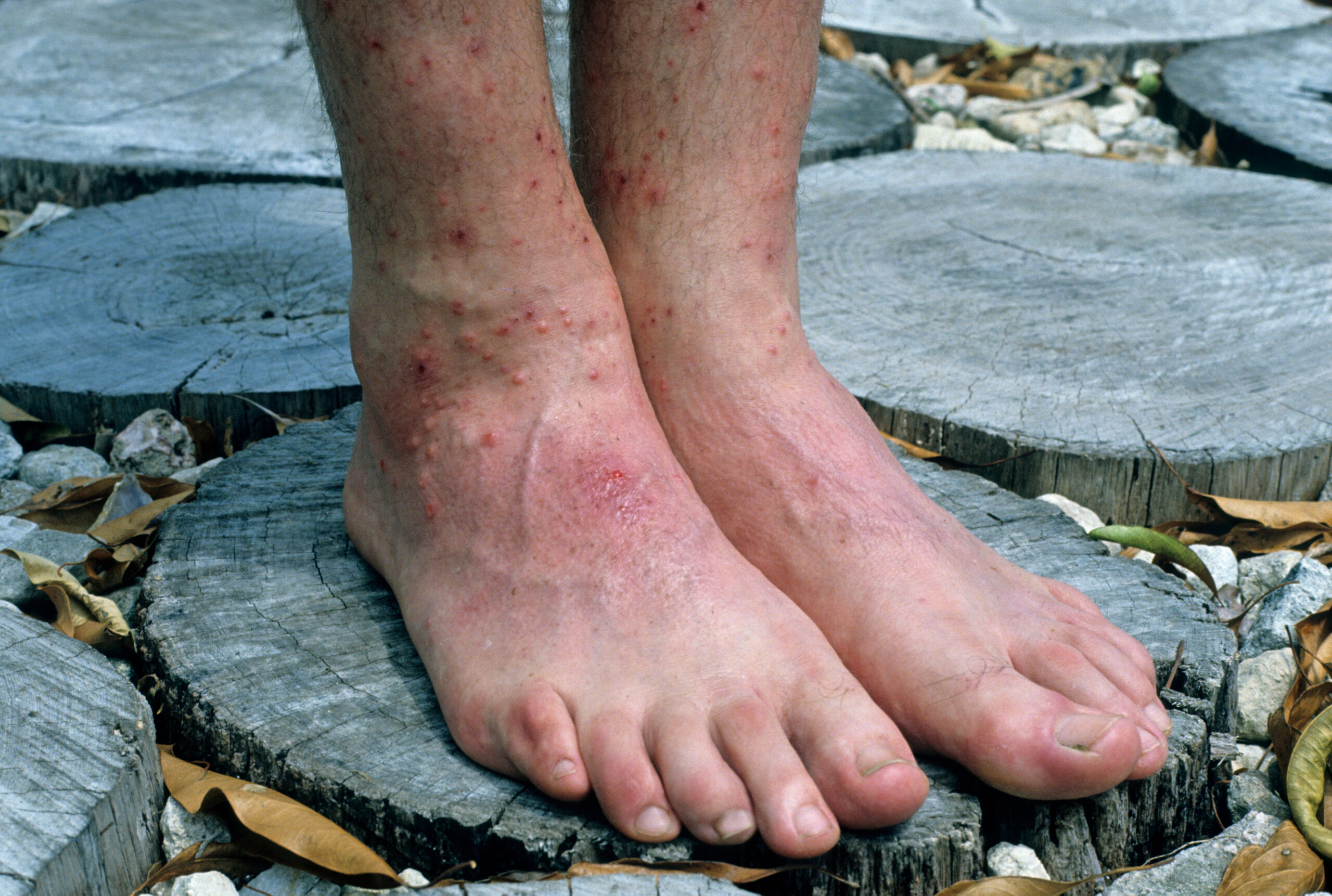Tactics
Spinnerbaits for Bass
January 30, 2026 •John N. Felsher
June 3, 2024
Chiggers, also known as red bugs or harvest mites, are tiny arachnids that can cause significant discomfort through their bites. Found predominantly in grassy and wooded areas, these minuscule pests are virtually invisible to the naked eye but can lead to intense itching and skin irritation. While I might be one of the lucky few avid outdoorsman to have never experienced a tick or chigger bite, I understand the importance of learning how to prevent, recognize, and treat chigger bites. Learn how to avoid them by reading below and you can spend your life chigger-bite-free just like me.

Chiggers are the larval stage of certain species of mites in the Trombiculidae family. Measuring less than 1/150th of an inch, they are typically red, orange, or yellow. Chiggers thrive in warm, humid environments and are most active during the late spring through early autumn.
Chiggers latch onto human skin through contact with vegetation. They prefer areas where clothing is tight, such as around the ankles, waist, and groin. Contrary to popular belief, chiggers do not burrow into the skin. Instead, they inject a digestive enzyme that breaks down skin cells, allowing them to feed on the resulting liquefied tissue. This enzyme causes the characteristic itching and redness associated with chigger bites.

Chigger bites often appear as clusters of red, itchy bumps. These bumps can develop into welts or blisters and are commonly found in areas where the skin is thin and the mites can easily access the dermis. The intense itching usually begins a few hours after the chiggers attach and can persist for several days.
If symptoms persist or if signs of infection (such as increased redness, swelling, or pus) develop, seek medical attention.
While chigger bites can be a nuisance, understanding how to prevent and treat them can help you enjoy the great outdoors with minimal discomfort. By taking the appropriate precautions and knowing how to effectively manage bites if they occur, you can reduce the impact of these tiny but troublesome pests. Whether you’re hiking, camping, or simply enjoying your backyard, staying informed and prepared is your best defense against chigger bites.
